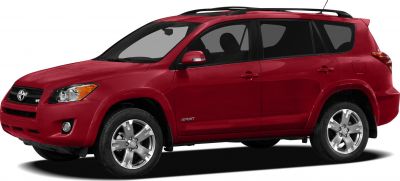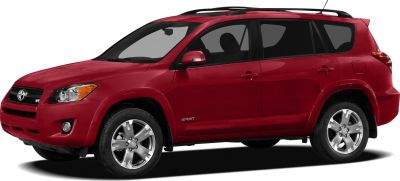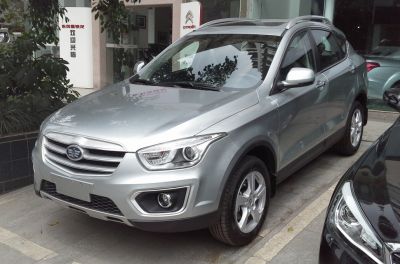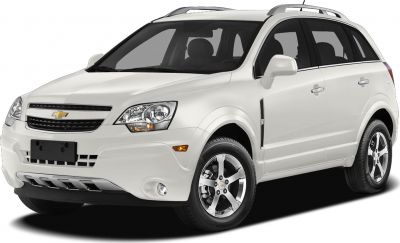 1999 Daewoo Musso (FJ) Dimensions, Size & Specs
1999 Daewoo Musso (FJ) Dimensions, Size & SpecsMeasurements of the 1999 Daewoo Musso, engineered for optimal performance and comfort
| Dimensions | |
|---|---|
| Length: | 4640 mm182.7 in15.2 ft |
| Width: | 1864 mm73.4 in6.1 ft |
| Height: | 1735 mm68.3 in5.7 ft |
| Trunk Capacity: | 780 liter27.5 cu ft |
| Trunk Capacity (Max): | 1910-1920 liter67.5-67.8 cu ft |
| Weight Specifications | |
| Curb Weight: | 1795-1935 kg3957-4266 lbs |
| Maximal permitted Weight: | 2520 kg5556 lbs |
| Tire Specifications | |
| Tire Sizes: |
|
The Daewoo Musso (FJ) is a mid-size SUV produced from 1995 to 2002, with the 1999 model year representing a key iteration of this durable and versatile vehicle. With a length of 4640 mm (182.7 inches), a width of 1864 mm (73.4 inches), and a height of 1735 mm (68.3 inches), the Musso offers a balanced footprint suited for both urban driving and off-road adventures. Weighing between 1795 to 1935 kg (3956 to 4266 lbs) curb weight, and a maximum weight capacity of 2520 kg (5556 lbs), the Musso is built sturdy enough to handle considerable cargo alongside passengers comfortably. One of its standout features is its impressive luggage capacity—offering 780 liters (27.5 cubic feet) with all seats in place, which expands dramatically to between 1910 and 1920 liters (67.4 to 67.8 cubic feet) when the rear seats are folded down. This makes the Musso exceptionally versatile for hauling both sizable cargo and passengers without compromise. Additionally, it comes equipped with robust tire options including 235/75 R15 and 255/70 R15, ensuring good grip and stability across various terrains. Overall, the Daewoo Musso (FJ) 1999 stands as a reliable and spacious SUV choice, combining practical dimensions with a capable payload and ample interior space.
Discover the standout features that make the 1999 Daewoo Musso a leader in its class
Have a question? Please check our knowledgebase first.
The Daewoo Musso (FJ) 1999 generation has an overall length of 4640 mm (approximately 182.7 inches), a width of 1864 mm (about 73.4 inches), and a height of 1735 mm (roughly 68.3 inches). These dimensions make it a mid-size SUV, offering a balanced presence on the road without being overly bulky. The width and height provide a comfortable and spacious cabin for passengers, while the length supports ample luggage and cargo capacity.
The curb weight of the 1999 Daewoo Musso (FJ) ranges between 1795 kg to 1935 kg (approximately 3956 to 4267 pounds). The maximum permissible weight, including passengers and cargo, is 2520 kg (about 5556 pounds). This weight range reflects the model's substantial build quality and capability, especially suitable for an SUV designed for mixed urban, highway, and light off-road usage. The considerable max weight capacity indicates that the Musso can handle a good load without compromising performance or safety.
The luggage capacity of the Daewoo Musso (FJ) is quite versatile. With the rear seats in place, it offers a trunk space of 780 liters (approximately 27.5 cubic feet), which is ample for typical family usage or weekend trips. When the rear seats are folded down, this capacity significantly expands to between 1910 and 1920 liters (roughly 67.4 to 67.8 cubic feet), providing a large, flat loading area suitable for bigger loads, recreational gear, or multiple suitcases. This flexibility is a strong point for buyers prioritizing cargo versatility.
Yes, the Daewoo Musso (FJ) from 1999 generally fits comfortably inside a standard garage. Typical single-car garages have dimensions around 2.4 to 3 meters (7.9 to 9.8 feet) wide and at least 5 meters (16.4 feet) deep, which are sufficient to accommodate the Musso's length of 4640 mm (4.64 meters or 15.2 feet) and width of 1864 mm (1.86 meters or 6.1 feet). However, the height of 1735 mm (about 5.7 feet) also needs to be considered especially if you have garage door height restrictions, but typically standard garages have clearances above 2 meters (6.5 feet), making it feasible to park the Musso without trouble.
Compared to its predecessor, the first-generation Daewoo Musso, the 1999 FJ generation saw some refinements but retained similar dimensions and capabilities. While exact measurements of the previous generation can vary slightly depending on the year and market, the length and width differences are marginal. The 1999 model focused more on updating styling, interior comfort, and possibly improving build quality rather than large changes in size. This approach helped maintain its practicality and usability while offering a more modern feel to appeal to contemporary SUV buyers.
The 1999 Daewoo Musso (FJ) competes well within the mid-size SUV segment of the late 1990s. Dimension-wise, its length of 4640 mm (182.7 inches) and width of 1864 mm (73.4 inches) put it in the same ballpark as vehicles like the Toyota 4Runner or Mitsubishi Pajero of that era, although specific competitors can vary by region. The Musso offers competitive luggage capacity, especially with rear seats folded, which at up to 1920 liters (67.8 cubic feet) surpasses some rivals in cargo flexibility. Its curb weight is on the heavier side, reflecting its sturdy SUV build. Overall, it combines respectable interior space and utility while maintaining manageable external dimensions for urban and off-road use.
The Daewoo Musso (FJ) typically uses tire sizes of either 235/75 R15 or 255/70 R15. The 235/75 R15 tires provide a good balance of traction, comfort, and durability suitable for mixed driving conditions including mild off-roading, while the wider 255/70 R15 tires offer enhanced grip and stability, potentially improving handling on uneven or rough terrains. Both tire sizes are classic for SUVs of this period, contributing to the Musso's ability to perform in varied weather and road conditions without compromising ride comfort or fuel economy excessively.
Yes, the 1999 Daewoo Musso (FJ) is quite suitable for families, especially those needing a mid-size SUV capable of comfortably carrying passengers and cargo. Its spacious interior dimensions, coupled with flexible seating arrangements that boost luggage capacity when rear seats are folded, make it versatile for family outings, grocery runs, and longer trips. The good headroom and legroom supported by a width of 1864 mm (73.4 inches) and height of 1735 mm (68.3 inches) enhance passenger comfort. These attributes, alongside its sturdy build and SUV stance, give families a practical and durable vehicle option.
One of the key strengths of the 1999 Daewoo Musso (FJ) lies in its solid build quality and the versatility of its cargo space, with a sizeable 780 liters (27.5 cubic feet) of luggage space expandable up to nearly 1920 liters (67.8 cubic feet) with seats folded. Its dimensions strike a good balance between interior spaciousness and external maneuverability. Additionally, the range of tire sizes like 235/75 R15 and 255/70 R15 allow it to be adaptable across different terrains and conditions. While it may not boast the latest technology of more modern vehicles, it remains a practical and reliable option among mid-size SUVs from the late 1990s to early 2000s.
Discover similar sized cars.

| Production: | 2012-2014 |
|---|---|
| Model Year: | 2012 |
| Length: | 4575 mm180.1 in |
| Width: | 1816 mm71.5 in |
| Height: | 1684 mm66.3 in |

| Production: | 2008-2012 |
|---|---|
| Model Year: | 2009 |
| Length: | 4620 mm181.9 in |
| Width: | 1816 mm71.5 in |
| Height: | 1684 mm66.3 in |

| Production: | 2017-present |
|---|---|
| Model Year: | 2017 |
| Length: | 4620 mm181.9 in |
| Width: | 1820 mm71.7 in |
| Height: | 1695 mm66.7 in |

| Production: | 2013-2017 |
|---|---|
| Model Year: | 2013 |
| Length: | 4586 mm180.6 in |
| Width: | 1820 mm71.7 in |
| Height: | 1695 mm66.7 in |

| Production: | 2011-2017 |
|---|---|
| Model Year: | 2011 |
| Length: | 4640 mm182.7 in |
| Width: | 1825 mm71.9 in |
| Height: | 1745 mm68.7 in |

| Production: | 2019-2021 |
|---|---|
| Model Year: | 2020 |
| Length: | 4655 mm183.3 in |
| Width: | 1835 mm72.2 in |
| Height: | 1750 mm68.9 in |

| Production: | 2015-2018 |
|---|---|
| Model Year: | 2016 |
| Length: | 4673 mm184.0 in |
| Width: | 1849 mm72.8 in |
| Height: | 1727-1756 mm68.0-69.1 in |

| Production: | 2011-2013 |
|---|---|
| Model Year: | 2011 |
| Length: | 4673 mm184.0 in |
| Width: | 1849-1868 mm72.8-73.5 in |
| Height: | 1756 mm69.1 in |
